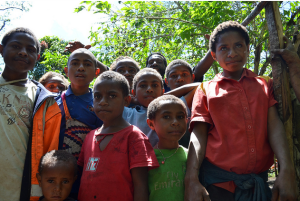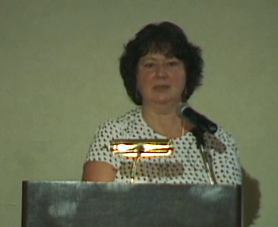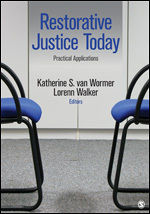News & Announcements
- Details
- Written by Joshua Wachtel
 photo from the highlands of Papua New Guinea by eGuide Travel at Flickr Creative Commons
photo from the highlands of Papua New Guinea by eGuide Travel at Flickr Creative Commons
A piece in the magazine Science titled “Turning from War to Peace in Papua New Guinea” (Vol. 337, September 28, 2012) by Elizabeth Culotta describes a recent anthropological paper co-authored by Polly Wiessner of the University of Salt Lake City, who has worked with and studied the Enga people of Papua New Guinea for 25 years, and Nitze Pupu, a blind Enga law school graduate. Wiessner and Pupu conducted more than 300 interviews to understand how the Enga have reduced violence, which was always present but shot up precipitously with the introduction of gun use in the 1990s.
Culotta writes: “The interviews highlight several factors that helped break the spiral of violence. First, people were tired and impoverished by war and felt that the damage wrought by violence was not worth the potential benefits. Second, once men had eschewed violence, Christianity offered them institutional support for their stance. Third, the brand of justice practiced in the village courts restored good relations among clans.”
- Details
- Written by Joshua Wachtel
 This week's video features Vidia Negrea, director of Community Service Foundation of Hungary, an IIRP international affiliate, delivery her full plenary at IIRP's 15th World Conference on August 2, 2012. The title of her talk was "Family Group Conferencing/Family Group Decision Making as a Transition from Prison in Hungary." Negrea begins by discussing her journey to introduce restorative practices in schools, social work and other areas, and then focuses on her work in prisons and how she has used restorative processes to help prisoners successfully return home after lengthy prison terms.
This week's video features Vidia Negrea, director of Community Service Foundation of Hungary, an IIRP international affiliate, delivery her full plenary at IIRP's 15th World Conference on August 2, 2012. The title of her talk was "Family Group Conferencing/Family Group Decision Making as a Transition from Prison in Hungary." Negrea begins by discussing her journey to introduce restorative practices in schools, social work and other areas, and then focuses on her work in prisons and how she has used restorative processes to help prisoners successfully return home after lengthy prison terms.
The 35-minute video can be viewed here.
A paper titled "Restorative Practices in Hungary: An Ex-prisoner Is Reintegrated into the Community" by Negrea offers a detailed case-study.
- Details
- Written by Joshua Wachtel
 Power U Center for Social Change is a nonprofit, grassroots organization based in Miami, Florida that, according to its web site, is "FIGHTING for our land, our people, our community; ORGANIZING for justice in our schools and communities; SUPPORTING the struggle of social, environmental, and economic justice." A key program area involves empowering youth to advocate for restorative justice in schools. Power U writes:
Power U Center for Social Change is a nonprofit, grassroots organization based in Miami, Florida that, according to its web site, is "FIGHTING for our land, our people, our community; ORGANIZING for justice in our schools and communities; SUPPORTING the struggle of social, environmental, and economic justice." A key program area involves empowering youth to advocate for restorative justice in schools. Power U writes:
In Miami, the majority of students arrested each year are Black, even though they only make up 27% of the student population. [An] unjustifiably broad and grossly unjust interpretation of zero tolerance policy on violence in schools has disrupted and interrupted education for so many students, and sent so many more on what is termed the "schoolhouse to jailhouse track"?, that approximately half of Miami's high school students fail to graduate.
- Details
- Written by Laura Mirsky
Opinion: The mounting cost of violence - Rep. Mike Honda - POLITICO.com.
From the Wisconsin shooting to the war in Afghanistan, we all know that violence costs our society, whether it’s domestic violence, a homicide, a war, or something as simple as a security system. We also know that there are direct and indirect costs associated with violence, whether it’s the immediate medical, court and police costs that stem from violent crime, or the long-term loss of economic productivity that stems from the loss of an American worker’s life.
- Details
- Written by Joshua Wachtel
 Amy Merickel, a mother of a San Francisco school child, discovers the power of restorative practices when she volunteers as a recess monitor. She describes her experience in this podcast from KQED radio.
Amy Merickel, a mother of a San Francisco school child, discovers the power of restorative practices when she volunteers as a recess monitor. She describes her experience in this podcast from KQED radio.
I like where she says:
"It's [restorative practices] a framework for community building and conflict resolution, and is predicated on high expectations with high support to meet them. In education, Restorative Practices emphasizes building trusting relationships and learning from conflict. It helps put the kibosh on bullying."
The full text of her piece can be found here.
IIRP's involvement with San Francisco schools' implementation of restorative practices and other news about the impact RP is having on schools and in the city can be found here.
- Details
- Written by Joshua Wachtel
 A chapter about restorative practices in higher education by IIRP President Ted Wachtel and University of Vermont director of residential life Stacey Miller has been published in a new book called Restorative Justice Today: Practical Applications, edited by Katherine S. van Wormer (University of Northern Iowa) and Lorenn Walker (University of Hawaii Honolulu Community College).
A chapter about restorative practices in higher education by IIRP President Ted Wachtel and University of Vermont director of residential life Stacey Miller has been published in a new book called Restorative Justice Today: Practical Applications, edited by Katherine S. van Wormer (University of Northern Iowa) and Lorenn Walker (University of Hawaii Honolulu Community College).
The book also includes a section on traditional North American native restorative justice philosophy and practice by Laura Mirsky, IIRP assistant director of communications and technology.
- Details
- Written by Joshua Wachtel
Sunday videos continue with this piece from the Dignity in Schools Campaign to mark their Annual National Week of Action on School Pushout going on now – September 29 to October 6, 2012.
To find out how to get involved in the Week of Action, click here.
- Details
- Written by Joshua Wachtel
Christian Science Monitor has published an opinion piece by IIRP President Ted Wachtel about the growing trend for schools to move away from failed zero tolerance policies. He also discusses the role restorative can play in this transition. The piece begins:
- Details
- Written by Joshua Wachtel
 The ACSA (Association for Student Conduct Administration), which serves higher education student conduct adminstrators, is offering a webinar titled "Introduction to Restorative Justice" on October 24, 2012 from 2:00 to 3:30 PM Eastern Time. John Bailie, IIRP director of professional development, will be one of three speakers. In addition to the general topic, Bailie will specifically discuss IIRP's Building Campus Community program. In addition to responding to harm, this program provides a framework for residential life staff to proactively build community in residence halls.
The ACSA (Association for Student Conduct Administration), which serves higher education student conduct adminstrators, is offering a webinar titled "Introduction to Restorative Justice" on October 24, 2012 from 2:00 to 3:30 PM Eastern Time. John Bailie, IIRP director of professional development, will be one of three speakers. In addition to the general topic, Bailie will specifically discuss IIRP's Building Campus Community program. In addition to responding to harm, this program provides a framework for residential life staff to proactively build community in residence halls.
To learn more and register for the webinar, click here.
- Details
- Written by Joshua Wachtel
Today's excerpt is from Julia Steiny writing at EdWeek and also on her blog. She says there is no evidence that punitive measures work to change students' behavior. But restorative justice does work. The piece is presented as an open letter to President Obama. The full link appears below.
No research shows that suspensions teach kids the social skills they need to keep them  from getting tossed out of school in the first place. None. Suspensions label a kid “bad,” which often becomes a self-fulfilling prophecy, even a badge of honor. Students who already experience failure at school welcome a few days’ vacation on the couch with a TV.
from getting tossed out of school in the first place. None. Suspensions label a kid “bad,” which often becomes a self-fulfilling prophecy, even a badge of honor. Students who already experience failure at school welcome a few days’ vacation on the couch with a TV.
But! Beastly behavior in class ruins teaching and learning. When feral or entitled children clown around, start fights or lash out at teachers with impunity, everyone suffers. Teachers and parents of the so-called “good” kids feel that removing the disruptor is the only real weapon they have against chaos.

Restorative Works Year in Review 2024 (PDF)
All our donors are acknowledged annually in Restorative Works.
